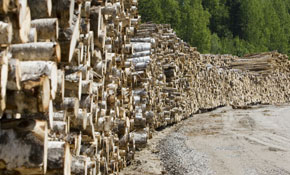

Last year was the UN Year of the Forest. It was a year for the world to look at how forestry is being used, preserved and enhanced.
One of the most significant issues facing forest areas is illegal logging. The definition of illegal logging is difficult to narrow down to a single example; it varies significantly depending on the different country circumstances. The importance for the paper industry is the potential damage to reputations caused by using paper made from illegally sourced wood fibre.
Various governments are taking illegal timber trade seriously, particularly the EU, US and also in Australia. So much so that over the past five years, legislation has been either written or changed to prevent the international trade of illegally harvested wood. In the US, the government modified the 100-year-old Lacy Act to include wood, pulp and paper products (Google ‘US Lacey Act’ for the full document). The original Lacy Act was constructed to prevent the illegal importation of plant material, so extending it to include products made from plants is logical. In Europe, the new law is the Forest Law Enforcement, Governance and Trade law, FLEGT (search ‘ FLEGT’ for more). Both the European and US laws aim to achieve the same end point.
FLEGT has been in development for about the past five years. The legal mechanism is based on international treaties between the EU and those countries that want to export their wood products to any of the 27 EU member countries. Under the system, the central EU government assesses the rigor of the timber industry in the exporter country. If the EU is satisfied that the system of controls within the exporter country is robust, the EU signs an international agreement, which “allows” the importation of all types of wood products from the exporter. The FLEGT law means that individual cases of products are difficult to challenge without absolute evidence of illegality.
The FLEGT committee hasn’t only focused internally within the EU. There has been a good deal of effort on working with exporter nations in developing standards for growing and harvesting forests in a legal way. In the past few years, FLEGT has been working with the Indonesian government on developing an Indonesian standard for legality. The Indonesians were working on a certification of legality called SVLK (search ‘SVLK’ for details). However,
with additional resources from the EU, the SVLK scheme has been bolstered.
SVLK is a mandatory certification for any Indonesian company that is involved in exporting wood or wood products. It is a guarantee of legality in regard to any wood products, including paper from Indonesia.
The Australian government has also been acting towards the issue of illegal trade of timber and is heading towards implementing the ‘Illegal Logging Law’ sometime in the near future. The Australian law is somewhere between the US Lacy Act and the FLEGT law.
The Australian Illegal Logging Law will recognise the merits of what is being done by other countries, such as Indonesia, but it will unlikely sign any joint treaties based on what other nations are doing. The Australian government has acknowledged the new SVLK system by the EU and Indonesian governments as one of the most robust legality systems developed.
SVLK will be mandatory for any manufacturer of wood products exported from Indonesia by 2015. Already the major firms in the sector in Indonesia are well down the track toward achieving SVLK. The biggest challenge will be the cost for the many very small harvesting firms that operate in the sector to attain the certification on time. The rest of Asia is viewing the SVLK system in Indonesia as a potential model for other nations, including China.
Phillip Lawrence is a PhD scholar, consultant and speaker who specialises in print and the environment
Comment below to have your say on this story.
If you have a news story or tip-off, get in touch at editorial@sprinter.com.au.
Sign up to the Sprinter newsletter



